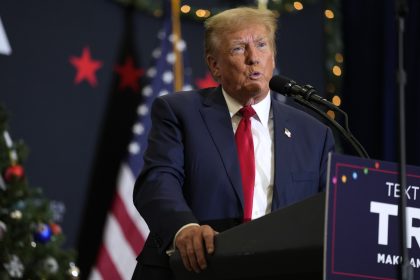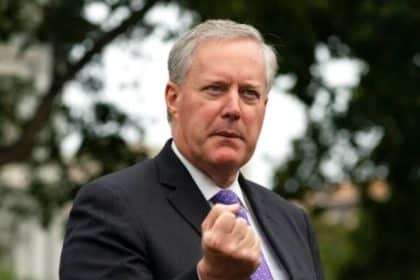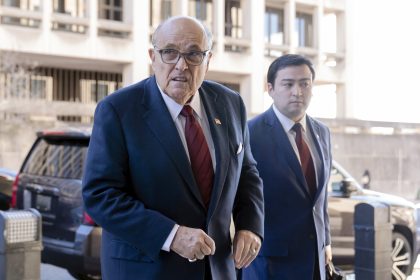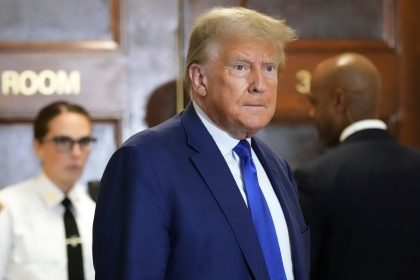States That Historically Lean Democrat Still Figure in Battleground Scenarios
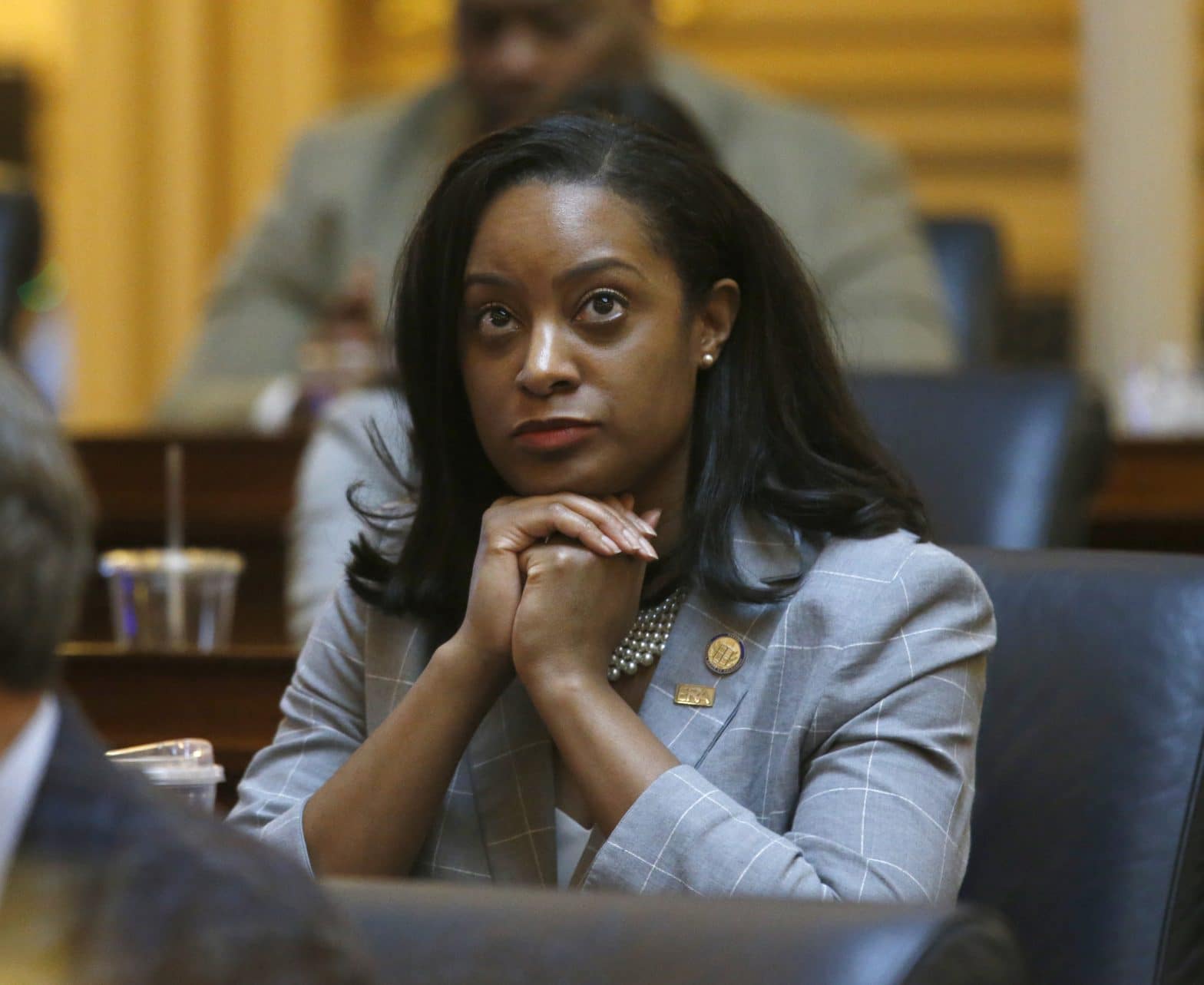
It has become the mantra for the run-up to the primaries and caucuses: pick the wrong Democratic nominee, and any one of the battleground states can wind up in President Donald Trump’s column.
This mindset comes heavily into play when one considers the role Colorado will play in the 2020 election.
Though Republican presidential nominees have carried Colorado in 10 of the last 15 elections — Trump lost the state by 4.9 percentage points in 2016 — Democrats have won 10 of the last 12 gubernatorial contests.
Democrats see the state Senate as decidedly flippable, particularly if they defeat Trump and U.S. Sen. Cory Gardner — often described as the most vulnerable incumbent in the U.S. Senate — making for a bad general election night for the GOP.
Gardner has energized Democrats against him due to his voting on Trump’s side of issues and nominations 89.3% of the time, most recently on Friday, when he voted against calling witnesses in Trump’s impeachment trial.
Also weighing in the Democrats favor is the recent influx of transplants to Denver and the surrounding Interstate-25 corridor — drawn to Colorado’s increasingly high-tech economy and liberal marijuana laws — that are both highly educated and relatively young — just the kind of voters Trump and the Republicans are having trouble wooing in other battleground states.
According to at least one published report, of the more than 500,000 transplants, 65% — or about 335,000 people, moved to the suburban Denver counties of Adams, Arapahoe, Boulder, Broomfield, Douglas and Jefferson.
Perhaps most importantly, registered Democrats now outnumber Republicans in Colorado. According to Colorado Secretary of State Jena Griswold’s office, as of December, there were 1,022,364 registered Democrats in the state compared to 967,449 registered Republicans, a margin of 54,915 voters.
Realizing Colorado was trending blue, but believing it was still winnable in 2016, Trump made 13 visits to the state in 2016, including five in the Denver metro area.
In the end only one Denver metro county, Douglas, went his way.
Which brings us back to Sen. Gardner. He won his seat in 2014, defeating Democratic incumbent Mark Udall, as part of the Republican wave that gave the party control of the Senate.
The victory capped his rise in the Colorado GOP, which began in earnest in 2010, when he scored a huge upset, ousting incumbent Democrat Betsy Markey in the race to represent Colorado’s 4th congressional district.
Pundits in the state say the key to Gardner’s victory was his ability to come close to even in the suburbs while making sure his conservative base turned out in the rest of the state.
Trump complicates his ability to do that again in 2020, particularly after Gardner’s vote to bar witnesses in the Senate impeachment hearing.
While he likely can hold more conservative areas, like southern Colorado, the likelihood of breaking even in the suburbs is almost nil.
Those who follow elections in Colorado closely say this sets up a situation where the Democratic presidential nominee could be most influential. As in other battleground states, pundits say the more moderate the contender at the top of the ticket, the more likely the party’s success in the state.
Could USMCA Save Trump’s Bacon With Farmers?
Like Wisconsin, Minnesota is a state in which elections are often won or lost in its rural farming communities.
Many farmers in Minnesota maintain their support for Trump has never wavered, but some admit their support was sorely tested by the trade war with China and the president’s inability for several months to seal the deal with Congress on a new U.S. trade agreement with Canada and Mexico.
That’s why the president made sure to invite farmers and ranchers to attend the White House signing of the agreement on Wednesday. Among the invitees were Ray and JoLyn Johnson, members of Minnesota’s Clay County Farm Bureau.
The Johnsons hosted Vice President Mike Pence in May on their farm, where they grow corn, soybeans, wheat and sugarbeets, stressing the importance of getting the USMCA done.
“We are grateful for the opportunity to be able to see this critical trade agreement to the end and to have been part of the process of sharing our story and providing an opportunity for others to share their stories of how trade affects family farms,” the Johnsons said.
“We can’t stress enough how important trade deals are to our farm and how important it is that USMCA has been signed,” they said.
But if the president was hoping to get a partisan bump from the deal, which the White House says will add $65 billion to the economy, those hopes were tempered by the farm community’s acknowledgement that passing the deal was a bipartisan endeavor.
“Minnesota Farm Bureau commends President Trump, the U.S. House and the U.S. Senate for the incredible bipartisan support of the United States Mexico Canada trade agreement,” said Federation President Kevin Paap in a written statement. “This trade agreement provides much needed certainty in a critical trade relationship with our two closest neighbors.”
The Bureau had earlier thanked Sens. Amy Klobuchar and Tina Smith, both Democrats, for their votes in support of the deal in the Senate.
The signing of USMCA came a day after Trump and Chinese Vice Premier Liu finalized their “phase one” trade agreement promising China would increase its purchases of U.S. agriculture.
Trump signed a partial trade agreement committing China to boost purchases of U.S. exports by $200 billion over two years, including $32 billion more in farm products. But critics warn that Beijing has a history of making promises it doesn’t keep, and that a one-time deal does not guarantee U.S. farmers sustained access to China’s market.
In its response to the developments, the Minnesota Farmers Union said both agreements are positive signs toward normalizing U.S. trade relations around the globe, but it rebuked Trump for seriously damaging those relations “with the reckless use of tariffs.”
“I’m glad to see USMCA and the China deal getting finalized, as they provide more certainty to our family farmers,” Farmers Union President Gary Wertish said. “However, there’s much remaining to be seen on how much these deals will benefit us.
“China has agreed to purchase $40-50 billion in agricultural products annually. But the parties haven’t revealed purchase benchmarks for individual commodities, nor have the U.S. or China publicly committed to specific tariff reductions. They need to follow through on actual shipments of ag products before we can believe their promises,” Wertish said.
Like Paap, Wertish also made sure to that Sens. KLobuchar and Smith for their support on the trade issue.
“With these trade deals, I’m more hopeful that we are getting back to being a reliable trade partner. But there’s a long way to go and much that could still happen in phase two. Trade deals are an important part of getting family farmers a fair price for their products. We urge the negotiators to keep that in mind,” Wertish said.
In a state as competitive as Minnesota, where the Twin Cities region often provides the winning margin for Democrats in statewide races, Trump can ill afford much erosion in farm country. In 2016, he won the state by less than 1 percentage point.
While the U.S. economy overall remains strong, farmers’ hardships have reverberated in some small towns in Minnesota. Thirty-one Minnesota farms filed for bankruptcy in the past year, a 10-year high, the American Farm Bureau reported in September.
Of course, trade policy isn’t the only factor Minnesotans consider when deciding on a preferred presidential candidate.
Recent polls, for instance, suggest that reining in the federal spending and the deficit is a growing concern. Along with that, large numbers of Minnesotans have expressed skepticism over proposals like Medicare for All and the wholesale elimination of college debt.
Such sentiments would seem to bode well for moderates on the campaign trail, including former Vice President Joe Biden, Klobuchar, former South Bend, Ind. Mayor Pete Buttigieg, and billionaire Michael Bloomberg, who this week opened a campaign office in Minneapolis, the first of seven he plans to maintain in the state.
“In 2020, you can’t take places like Minnesota for granted,” Bloomberg said as he toured the new office.
An aide mentioned the former New York City mayor has already spent $2 million on television ads in the state.
“We’re not waiting to organize and invest in Minnesota. We’re doing it right now,” Bloomberg said.
While in Minnesota, Bloomberg also visited a family farm in Wells, Minn., to gain, he said, a better understanding of rural America.
“We eat and live based on what you do,” Bloomberg told Charlie, Scott and Darin Johnson, the owners of the farm “And I think it’s easy for us living in big cities to forget about the rest of the world and it just doesn’t come up because you don’t see them every day.”
The other campaigns stress that they are focusing on Minnesota as well, which votes on Super Tuesday.
Biden’s campaign, for example, announced this week that it hired senior staff in Minnesota and Colorado, another Super Tuesday state.
To date, volunteers with Sen. Bernie Sanders’ campaign have held more than 450 events in Minnesota, and Klobuchar, of course, is in the state regularly.
Virginia Swings to the Democrats
Virginia was a solidly red state until 2008. It was then, after years of subtly changing demographics and growing suburbs, that it started to slowly lean to the Democrats.
Even then, Republicans kept their edge in the state by investing heavily in keeping it in the GOP column.
Then, along came Donald Trump. And the dam broke.
Virginia is the only Southern state Trump lost in 2016, and it is widely believed that the strong adverse reaction to him on the part of a majority of the state’s voters helped Democrats gain control of both houses of the Virginia General Assembly for the first time since 1993.
Other factors contributed as well.
For instance, beginning almost the moment Trump claimed victory, a number of grassroots organizations began an ongoing effort of community organizing and voter engagement.
Then, there were the self-inflicted wounds, the worst being GOP legislators’ tone-deaf rejection of the Democratic governor’s call for a special session on gun safety following a mass shooting in Virginia Beach.
In the aftermath of this, the Democratic National Committee began devoting money and resources to Virginia like never before, providing meaningful support for candidates, campaigns and local parties in places they had written off as unwinnable.
And the more the DNC did, the more offices Democrats were able to pick off.
Besides controlling the statehouse, the commonwealth also continues to have a Democratic governor and two Democratic U.S. senators — almost a complete reversal of the party’s electoral fortunes even four years ago.
“The best guess on whether Virginia will remain a swing state is whether the Republicans invest a lot of money in the 2020 election,” Stephen Farnsworth, a political science professor at the University of Mary Washington, told News 4 Washington recently.
Farnsworth said he believes Virginia is moving in a “bluer direction,” but it’s definitely still a “purple state.”
“Beyond 2020 we’ll see, but at least for the next election cycle, Virginia will be very competitive,” he said.



















